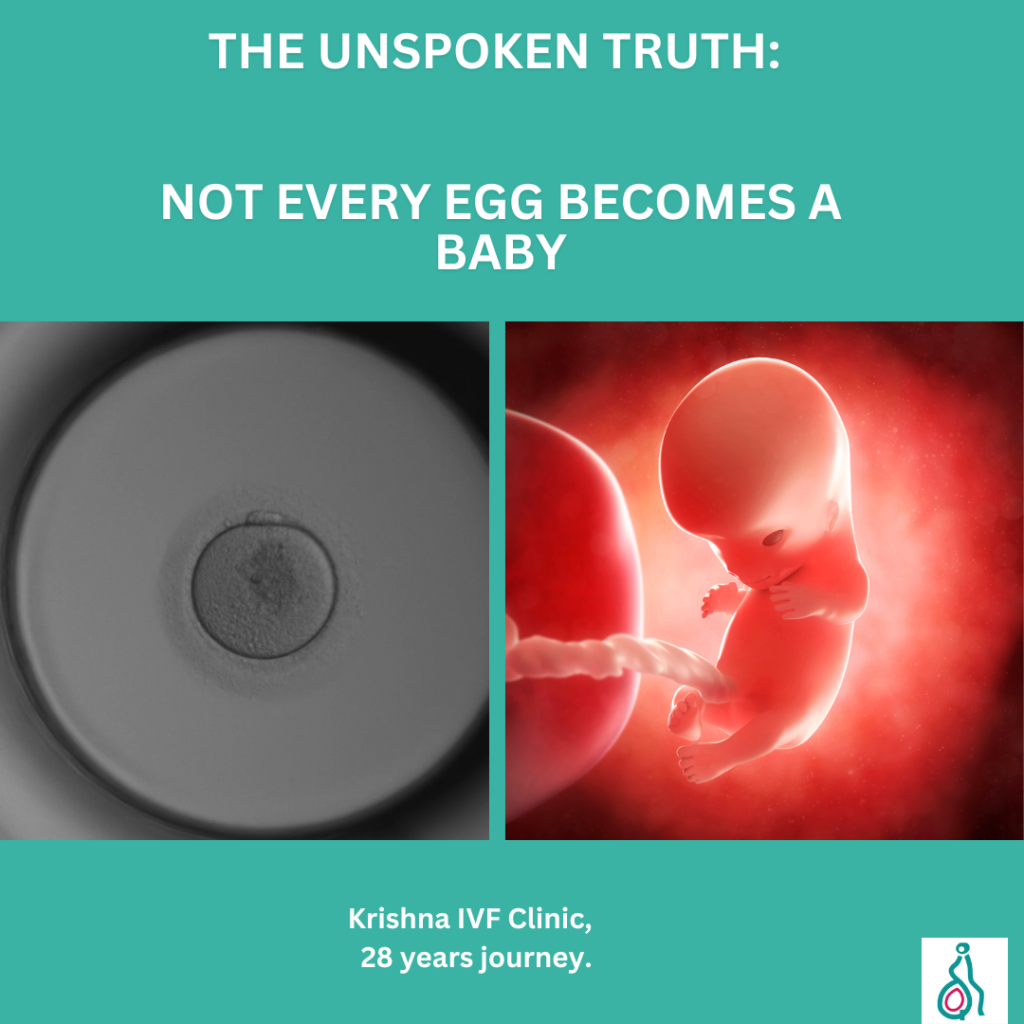The Unspoken Truth: Not Every Egg Becomes a Baby
The pregnancy journey is often depicted as a linear path: an egg is released, meets a sperm, and voila! A baby is on the way. While this is the simplified version we often hear, the reality is much more nuanced. Not every egg released during a woman’s menstrual cycle will become a baby. Most eggs will never fertilize, and even fewer will result in a successful pregnancy.
– Dr. G. A. Ramaraju DNB PhD, Consultant Krishna IVF Clinic
The Odds of Pregnancy
While research suggests that approximately 80% of couples who have unprotected sex for a year will conceive, this statistic doesn’t tell the whole story. Many factors contribute to this percentage, including the age and health of both partners, the timing of intercourse, and even sheer luck. It’s important to remember that this 80% figure represents the overall chance of pregnancy over a year, not the success rate of each egg.
The Unseen Journey of an Egg
Each month, a woman’s ovaries release an egg in a process called ovulation. This egg travels down the fallopian tube, where it may or may not encounter sperm. If fertilization occurs, the resulting embryo will continue to the uterus, where it will hopefully implant and begin developing into a fetus.

However, this journey is fraught with obstacles. Many eggs never make it down the fallopian tube, while others fail to fertilize even when sperm is present. Even if fertilization does occur, the resulting embryo may not be viable, or it may fail to implant in the uterus. It’s estimated that only about 30% of fertilized eggs will result in a live birth.
The Silent Loss
The loss of an unfertilized egg or a fertilized egg that doesn’t implant often goes unnoticed and unmourned. However, for couples struggling to conceive, these losses can be deeply felt. It’s important to acknowledge that each egg represents a potential for life, and losing that potential can be a source of grief.
The Importance of Understanding
Understanding the complex journey of an egg can help to demystify the process of conception and provide comfort to those struggling with fertility issues. It’s important to remember that not every egg will lead to a pregnancy, and that’s perfectly normal. By acknowledging the unseen struggles of eggs that never were, we can gain a deeper appreciation for the miracle of life and the resilience of those who seek to create it.
In Conclusion
The journey from egg to baby is not a guaranteed path. While it’s true that many couples will eventually conceive, it’s essential to recognize that not every egg is destined for fertilization or implantation. By understanding the many factors contributing to successful conception, we can gain a deeper appreciation for the miracle of life and offer support to those struggling to conceive.
